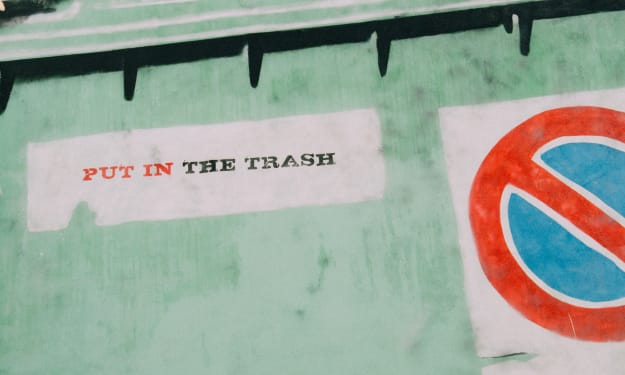India Desperately Needs a Basic Income Scheme If It has to Emerge from the Pandemic
How Universal Basic Income can be a Game Changer for India in the Midst of the Pandemic

The Covid 19 Pandemic has wrought havoc worldwide in terms of the human, economic, political, and social costs as Millions of people around the world lost their lives and livelihoods. Not only was the human toll higher than any previous such epidemic or even the Two World Wars, the economic and the financial burden imposed by the Pandemic has well and truly devastated the already vulnerable and further marginalized the precarious. Indeed, the Once in a Century Event has disrupted our lives to the extent that even partial recovery seems daunting in the immediate future.
While governments worldwide came out with stimulus packages and other forms of economic and financial assistance, there is a strong case to be made for more direct interventions in the forms of Targeted Cash Transfers and Universal Basic Income or UBI. Of course, the United States and Europe have taken the lead here with Direct Benefit Transfers or DBT in the form of Unemployment Assistance and Social Security Checks to the less privileged. However, the same cannot be said of many countries worldwide, especially the developing and the underdeveloped nations such as those in Asia, Africa, and Latin America, that have shied away from Direct Assistance to the poor the marginalized.
In my home country, India, there have been some forms of DBT, though they were mostly at the regional level and the central government, while ensuring assistance, has largely left it to the states, to implement such transfers. Moreover, even in the states, it were the Southern regions which have experimented with Direct Assistance Schemes, though they were part of already existing programs aiming for Targeted Interventions. So, what I argue here is that there is a need for UBI that can obviate some of the problems caused by the Pandemic without “disturbing” the existing and planned relief efforts.
For instance, the states of Andhra Pradesh, Telangana, and Tamil Nadu, which have resorted to direct assistance have done so either by expanding the ambit of preexisting welfare schemes or newer, yet smaller, interventions which were clearly limited in scope. Moreover, both AP and TN, have a historical legacy of rather broad and wider welfare schemes, which even progressive and left leaning economists agree are generous largess payouts. Leaving the South, the other states have relied on the Central Government Sponsored Rural Job Guarantee Programs and the center did allow for the increase in outlays for these programs.
Instead of “dispersed” welfare payouts, a UBI can “smoothen” the welfare state and centralize assistance under One Head of Expenditure. While there are specific reasons why welfare payouts have been “spread” over a host of schemes, including differential incomes of the beneficiaries, and the “uneven” needs for assistance, there is no harm in clubbing together all such payouts under UBI. Moreover, by “lumping” the gamut of payouts, administrative and operational creases can be ironed out, leading to more efficient distribution as well as eliminating waste and plugging the leaks.
For instance, there are many cases of undeserving beneficiaries cornering state largess and through a targeted intervention, such corruption can be minimized. In addition, identifying beneficiaries can be made easier by an UBI that has the Aadhar Based disbursal of benefits. Apart from this, there can be a graded UBI that can assuage concerns relating to differential needs for assistance. Moreover, India being a large, diverse, and complex country, can benefit from a centralized UBI, much like the present Vaccination Drive, which was chaotic initially due to confusions related to ownership, and has since been smoothed, due to centralization.
While there can be concerns over “free lunches”, it needs to be reminded that the extraordinary situation created by the Pandemic calls for “radical” measures, and hence, more than ever, there is a strong case to be made for a Universal Basic Income. Indeed, as explained above, the Central and State Governments do not lose out much as they would simply be collating all the multiple welfare payouts and consolidating them into a Single, Focused, and Centralized Income Benefit. Considering that the Pandemic has resulted in disruptions to livelihoods and loss of lives as well, a Basic Income that focuses on the Precariat, or those whose live on the margins and fringes of society, means it would be highly effective.
Moreover, the Aadhar Scheme has achieved Near Universal Coverage and hence, basing the UBI on it can be a good way to “reach” those who need assistance the most. At the moment, Indian Welfare Schemes cover those who have either registered themselves as “needy” or those who have been identified as such by the governments. By expanding the scope of the assistance, a Truly Functioning Social Safety Net can be implemented. Indeed, India has long been accused of abandoning its poor when they need it the most, and hence, a UBI that works along these lines can be the Game Changer during these perilous times.
About the Creator
Rammohan Susarla
Writer seeking metaphysical fulfillment by publishing meditations and ruminations about the world.
I am a Techie turned Business Analyst who found his true calling as a writer this journey spanning 12 years has been incredibly rewarding.





Comments
There are no comments for this story
Be the first to respond and start the conversation.